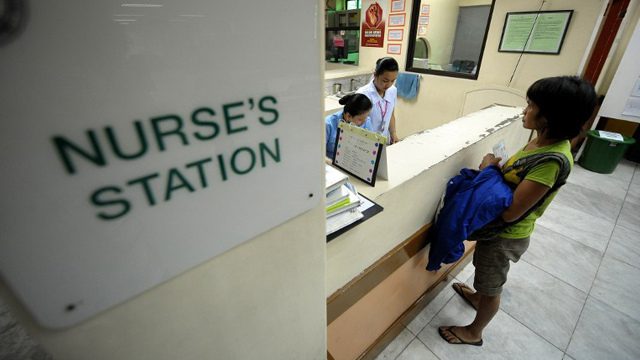SUMMARY
This is AI generated summarization, which may have errors. For context, always refer to the full article.


MANILA, Philippines (UPDATED) – In a special ceremony in Malacañang, President Rodrigo Duterte signed a law that seeks to provide health care for all Filipinos.
Surrounded by lawmakers who championed the measure, Duterte affixed his signature to the universal health care (UHC) law or Republic Act No 11223.
The law intends to automatically enroll every Filipino in the National Health Insurance Program, created by the measure.
Membership in the program can either be direct, meaning by paying health premiums, or indirect, such as those who are sponsored like senior citizens and indigents.
The program would be handled by the Philippine Health Insurance Corporation (PhilHealth).
How do Filipinos benefit?
Filipinos will now be considered to possess “immediate eligibility” for and have access to the full spectrum of health care, which includes preventive, promotive, curative, rehabilitative, and palliative care for medical, dental, mental, and emergency health services.
Patients would be registered with a primary health care provider of their choice, for outpatient care, medicines, and laboratory tests. These will also be included in PhilHealth’s primary care benefits package.
Direct contributory members would also get more benefits as premiums increase. This is intended to encourage those who pay higher premiums and those who are voluntarily paying.
Membership rates would also gradually increase by .5% yearly, while income ceilings for contributions would go up by P10,000 per year.
Meanwhile, PhilHealth payments for local government unit (LGU) hospitals would be set aside in a special fund to improve the health facilities in LGUs.
What’s next?
With the law’s passage, government health care services must now transition to fit the UHC system.
According to the Department of Health (DOH), about P257 billion would be needed to implement UHC in its first year.
The following funding sources will be used for the UHC program:
- DOH annual budget
- Revenues from sin taxes
- Philippine Amusement and Gaming Corporation (50% of the national government’s share)
- Philippine Charity Sweepstakes Office (40% of the fund, net of documentary stamp tax payments and mandatory contributions)
- PhilHealth members’ contributions
- Government subsidies to PhilHealth
In the Senate, the bill’s principal sponsor is Senator JV Ejercito, who is running for senator again in 2019, with the endorsement of the President. In the House, former Kabayan representative Harry Roque was principal sponsor. He too intended to run for senator but dropped out of the race before the campaign period began. – with reports by Sofia Tomacruz/Rappler.com
Add a comment
How does this make you feel?
There are no comments yet. Add your comment to start the conversation.